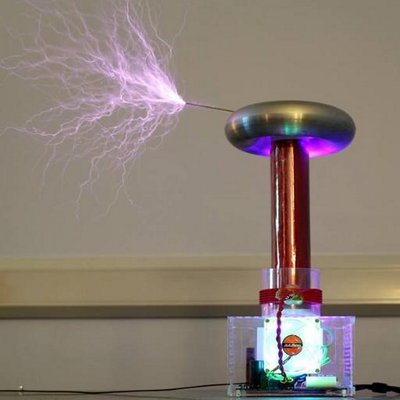
August 31, 2017, by Prof Meghan Gray
Summer Research: Systems Engineer at BAE Systems
 An interview with undergraduate Jake Lester, who has been working on a summer internship at BAE Systems. Jake will be shortly returning to Nottingham for his fourth and final year of the MSci programme and will also serve as president of PhysSoc.
An interview with undergraduate Jake Lester, who has been working on a summer internship at BAE Systems. Jake will be shortly returning to Nottingham for his fourth and final year of the MSci programme and will also serve as president of PhysSoc.
This is the second post in a continuing series focusing on how our students are spending their 2017 summer break. Previously:
Chloe Gowling: Diamond Light Source
Shaun Brown: Crystal Clear Clusters
Q1) Tell us about your job. What are you working on?
I work as a Systems Engineer for BAE Systems. Systems Engineers look at designing, testing, integrating and managing complex systems over their lifetimes. BAE Systems is the UK’s biggest employer of professional engineers, with a focus on defence, aerospace and security. In my job I work with the Campaigns team in the Defence Information part of the Military Air & Information (MAI) business. We look at securing future work for BAE Systems. In my team I focus on live export communications and networking systems projects, and how we can develop and deliver bespoke products and solutions to our customers.
Most recently, I’ve finished creating a model for a communications package using my thermal physics knowledge from second year. I’ve produced a report based on the findings of the model which has allowed me to formally present the original work I’ve been doing and continually develop my report writing. I learned more about networking though online courses, made a meaningful contribution to the team and gone off-site to head office, all within the first 5 weeks!
Q2) How did you find out about the opportunity, and what was the application process like?
I found out about the opportunity and the company from a simple Google search about engineering internships. The application process itself is actually quite simple.
I first filled in an online application form for the particular role, with all my academic and personal details. Once my application was processed I had to complete a recorded video interview over webcam, by answering some questions in limited time. After that I was invited to a formal interview which consisted of 45 minutes competency based interview and a 45 minute technical interview. Next I got the role!
Q3) What’s a typical day like for you?
Normally I’d get to the office around 8 am and work until 4pm at the earliest. At first there is a daily meeting with the team to discuss current projects, before we all continue with our own tasks. Tasks normally roll over into a number of days due to the complexity of them. The site is quite small compared to other BAE Systems sites so you recognise a lot of faces throughout the day. I know it’s a cliché but no two days are the same! One day you could be at your desk and the next you might be travelling on business or down in the lab.
Q4) What’s been the biggest challenge so far?
Adjusting to a 37 hour week from the rather casual hours at university has been an eye opener, but as long as you’re punctual, organised and able to manage your time you’ll be fine. I’ve now got into a scheduled routine of work, cooking, going to the gym etc which will definitely help me in 4th year and in work in the future.
With regards to the work itself, I’ve been given a lot of help and support from my manager and colleagues and they treat me as a valued member of the team. Due to my limited time here (12 weeks) it’s difficult to get fully involved with all the projects, but I’ve been given the chance to get involved where possible and work with new people. I also have objectives to complete before the end of my internship which gives me something to work towards.
Q5) What are you most looking forward to when you return to Nottingham in September?
First and foremost I’m looking forward to seeing all my friends and getting settled in my house again. It’s going to be a somber moment though as it’s my last year at Nottingham and a lot of my friends have graduated already.
However I’m also looking forward to running PhysSoc as its President. I have a really strong team helping me with the year ahead and I want to make it as welcoming as possible for new and returning students.
4th year should be a challenge as I know it’s a very intense workload, but it’ll be nice to finally not have to worry about May/June exams after 7 years of them!
Q6) Do you have any tips for anyone considering a summer internship?
Firstly, in my opinion, only do one if you want to do one. You’ll be with the company for anywhere between 8-12 weeks and that’s a long time when you’ll most likely be in a new location, maybe by yourself. Internships can definitely make you more employable and I fully recommend doing them, but make sure you’re doing it for the right reasons.
Secondly, if you do want to do one, apply early and everywhere. I originally applied for BAE Systems (as my first application) in late November 2016, for an Aerospace Engineering internship. But because my degree wasn’t in aerospace engineering, BAE Systems felt I was better suited in other roles and gave me some other options to choose from. After a couple of months I received a phone call offering me a place in MAI where I am now, as the other options were then filled. I really enjoy the job I’m doing now and working with the people I do. However the take-away from all of this is to apply early! November might seem like an early time in the calendar but the best time to apply is September, or as soon as opportunities open. That’s the same for grad jobs too.
Finally, I’d highly recommend going to see the University of Nottingham Careers and Employability service. Whether it’s to get your CV checked, interview practice or just some general guidance – it’s worth it. They can direct you to certain career paths and constantly do workshops and private one-to-ones throughout the year.
As a final few words, don’t be put off by the prospect of long application forms. It’s all practice and will help you in writing cover letters and your CV. If you reach interview, its a great opportunity to present your skills and achievements, so even if you don’t get the job its well worth doing. The earlier you apply the better, and an internship could tell you whether or not you want to work in a particular industry.
I hope you enjoy the rest of your summer, and if you’re a new or returning student I wish you all the best for the upcoming academic year. I’m sure I’ll see many of you when term starts in September!
No comments yet, fill out a comment to be the first

Leave a Reply